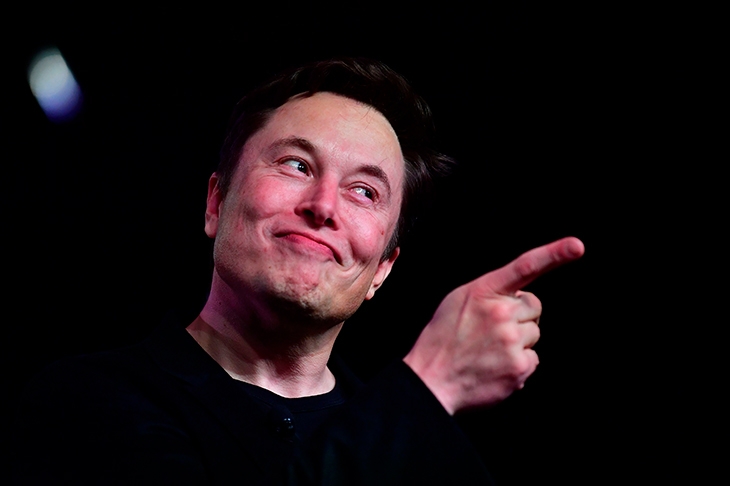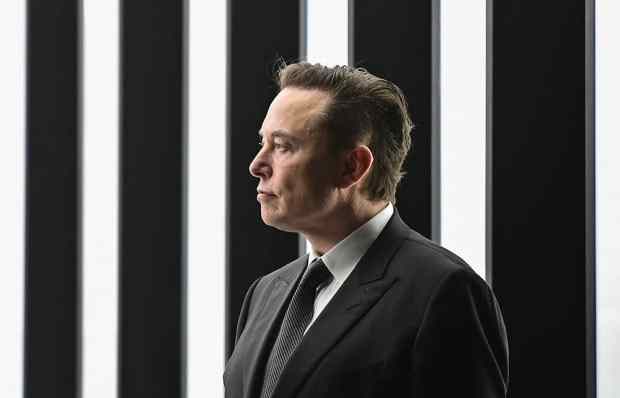This month’s most significant corporate deal attracted less attention than it might have done in normal times, crowded out by grim news elsewhere. It is the proposed £31 billion merger of O2 and Virgin Media to create a telecoms giant with 46 million customers. Following BT’s 2016 acquisition of the mobile operator EE, further ‘convergence’ in the sector had been expected, but the mid-lockdown timing was spun as a vote of confidence in the UK, described as ‘one of the most attractive markets on Earth’ by José María Alvarez–Pallete, chief executive of Telefónica of Spain, which owns O2.
Investment of £10 billion in the new group’s mobile, broadband and television platforms is promised over the next five years. But sceptics noted that both Telefónica and Virgin Media’s owner, Liberty Global of the US, will be taking cash out, while the venture starts life with £18 billion of debt — so there’s also an element of defensive financial engineering, not to say alchemy.
And we have yet to learn the name of the 50-50 venture that (unless competition regulators or a bidder such as Vodafone intervenes) will come into being next year. The O2 brand is strongly associated with entertainment; the Virgin name, retained under licence after the original Virgin Mobile business was sold to NTL Telewest in 2006, has carried connotations of being young, hip and mould-breaking ever since Richard Branson launched Virgin Records 50 years ago.
But now the unloved Virgin Trains have gone and the grounded Virgin Atlantic is on the brink. Pleas from Richard Branson for a taxpayer bailout provoke scornful references to his offshore fortune, while his offers to sell shares in his space venture and mortgage his private Caribbean island to raise emergency funding smack of desperation. To have maintained the illusion that underlies any successful brand image over half a century is no small achievement. But I suspect the birth of the UK’s new digital mega–player will also mark the end of the Virgin era.
The value of mavericks
If I had to be marooned with a billionaire on a Caribbean island, I’d pick fun-loving Branson over mad-as-a-brush Elon Musk. The South African-born Tesla tycoon, who recently named his newborn son ‘X Æ A-12’, this week reopened his electric car plant at Fremont in California in defiance of local county coronavirus restrictions. He then launched a lawsuit against local authorities, announcing that ‘If anyone is arrested, I ask that it only be me’, and threatened to move the Tesla operation — which created 10,000 jobs on a defunct old–economy factory site — out of the state altogether.
On the one hand, Musk has been accused of spreading disinformation downplaying the pandemic threat to his 34 million Twitter followers. On the other, he says all necessary safety procedures are in place at the Tesla plant, he’s had support for reopening from US Treasury Secretary Steve Mnuchin, and he’s been drawing flak away from other car-makers such as Ford, GM and Fiat Chrysler, which all have plans to restart production on a limited basis this month.
In this weird phase of tension between the mass fear of sickness and death that has dominated all public discourse, political action and media space for the past two months, and the not-yet-real threat of economic destruction, it’s important that mavericks like Musk should start to push back. Of course there’s an element of risk in that suggestion, but the world seems to have temporarily forgotten that risk is ever–present in normal life. If Musk is wrong and infection rates blip upwards in Alameda County (which has kept stricter lockdown rules than other parts of California) then by all means put him in a cell, perhaps even a padded one. If not, he’ll have done the US industrial economy a valuable service.
Not-so-hidden agenda
‘Covid-19 has exposed the many faultlines of capitalism,’ writes Andy Bain of the Communist party in Morning Star, which declares itself the only daily paper in Britain that’s fighting for a revolution. ‘Raised awareness of the injustices… is likely to lead to a heightened level of class conflict.’ Bain praises teachers and rail unions in particular for ‘resisting the government and employers’ — and of course he’s talking first about safety concerns, but without hiding his urge to see socialism and state ownership rise from the rubble of a pandemic-bombed private sector.
Other adherents to that cause are more subtle: Len McCluskey, leader of the Unite union, spoke in almost honeyed tones on the Today programme of ‘co-operation’ and ‘first-class conversations’ with ministers. But do you think he really meant it? Can you imagine the Zoom conversations between him and the rest of former shadow chancellor John McDonnell’s politburo-in-exile: ‘Comrades, the tide of history is turning our way again…’ Back to Andy Bain: ‘The trade unions — for the first time in at least a generation — are not being portrayed negatively by most of the media.’ Well maybe they should be, because the not-so-hidden agenda embraced by many of their leaders is the next great danger facing the nation.
Stocking up for revolution
Meanwhile, I probably shouldn’t provoke the left by pointing out that the portion of the population that is either salaried, pensioned or comfortably furloughed is, in the absence of so many normal spending outlets, accumulating savings while still shopping avidly online — creating remarkable success stories. Brompton, the folding bike maker, reports a fivefold increase in sales since the start of April. Artfinder, a market-place for contemporary artwork, reports ‘a 110 per cent increase in new customers’. British-owned Château Bauduc in Bordeaux reports more than 1,000 UK orders for its new-season whites and rosés. If the revolution’s coming, you might as well fill the cellar, hang something pleasing on the wall and oil your bike for a quick getaway.
Got something to add? Join the discussion and comment below.
Get 10 issues for just $10
Subscribe to The Spectator Australia today for the next 10 magazine issues, plus full online access, for just $10.
You might disagree with half of it, but you’ll enjoy reading all of it. Try your first month for free, then just $2 a week for the remainder of your first year.















Comments
Don't miss out
Join the conversation with other Spectator Australia readers. Subscribe to leave a comment.
SUBSCRIBEAlready a subscriber? Log in